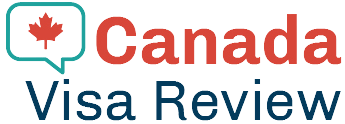Why You Need a SIN
To be eligible to work in Canada, immigrants will need a Social Insurance Number (SIN), which you should apply for as soon as you set foot on Canadian soil. A Social Insurance Number is a nine-digit number which also gives you access to government programs and benefits. A SIN is issued to one individual only and it can't legally be used by any other person. You are in charge of ensuring your SIN. Store any document containing your SIN and personal information in a protected place and don't keep your SIN on your person.
Applying For Your SIN
Service Canada is presently issuing SINs in paper format (affirmation of SIN letter). Creation of the plastic SIN card has ceased, in any case, SIN cards that do not lapse and are at present available for use can still be used. There are specific documents needed when applying for a SIN, these documents depend on your status in Canada. If you’re a Canadian citizen, you’ll need to show but one of the following documents; a birth certificate, certificate of Canadian citizenship or a certificate of Indian status (this is for Aboriginal/native people). If you’re a permanent resident in Canada, you will need to supply the following documents; Permanent Resident card or confirmation OR confirmation of Permanent Residence and Visa counterfoil on Single Journey Document for Resettlement to Canada. Lastly, temporary Canadian residents need to show one of the following documents; work permit from Immigration, Refugees and Citizenship Canada or a study permit and perhaps a ‘confirmation to work off-campus and/or Diplomatic Identity Card. Remember your SIN is confidential and should only be used to income-related information.
Your Canadian Resume
You might be able to find a job all the more rapidly with a Canadian-style résumé. While Canadian résumés come in a wide range of formats, they share a few standards that you ought to think about.
Keep it short: Keep your résumé short. In Canada, a vast majority of people have a résumé that is 2 pages in length. Keep it to 1 page if you’ve just completed school or don't have a ton of experience.
Change your resume for specific jobs: Career specialists suggest that you tweak your résumé for every job, particularly at the beginning of your résumé. General or nonexclusive resumes don't work in today's labor market. For a few occupations, you can change a few sentences to concentrate on specific aptitudes and achievements. For others, you may require a new résumé.
Social Media: Numerous employers cross-reference your résumé with your online reputation. LinkedIn is a well-known business-related social site. When you upgrade your résumé, make a point to update your LinkedIn profile as well. Managers may likewise search for you on other social media platforms, for example, Facebook, Twitter, and blogs. First impressions are important, if you don’t want a potential employer to see something, don't make it publicly open or put it online by any means.
A few essential things your resume has to contain: Contact information, professional summary, work experience, education/professional development. Also, add any technical skills and volunteer experience or any community involvement.
General job listing websites
Job listing websites are the go-to for most job seekers. With online job searching, you’re able to get more done and apply for more jobs in a shorter period of time. Here are some of our most favored job listing websites:
- Eluta- A job search engine that focuses on finding jobs from employer websites directly. You can search by region and catchphrases/keywords.
- Ca - Search by occupation title and location. Postings originate from many employment sheets, daily newspaper classifieds, and business sites. Likewise incorporates entry-level positions. It is also accessible in French.
- Job Bank - Offers clients free profession data, for example, job postings, educational necessities, and trends. From the Government of Canada.
Be sure to consistently stay up-to-date with the latest in immigration developments.
